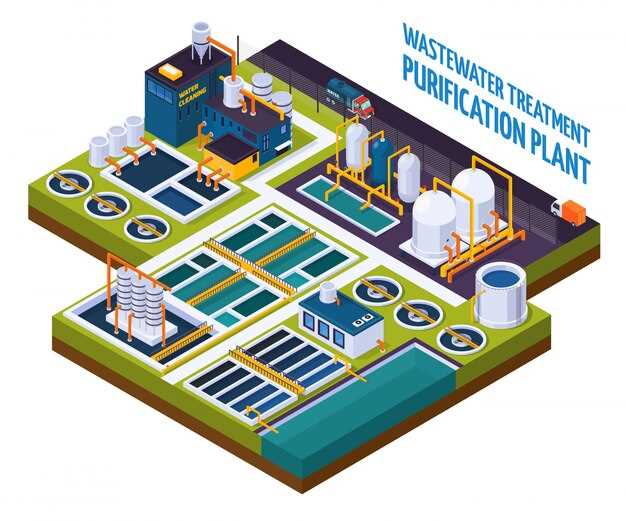

In modern diesel engines, the importance of maintaining fuel purity cannot be overstated. Diesel fuel can often contain water as a contaminant, which poses significant risks to engine performance and longevity. Water separators play a crucial role in ensuring that water is effectively removed from the fuel system, enhancing both the safety and reliability of diesel engines.
The presence of water in diesel fuel can lead to a myriad of issues, such as fuel emulsification, microbial growth, and corrosion of engine components. By employing a water separator, operators can mitigate these risks, ensuring that only clean fuel reaches the injection system. This proactive measure not only safeguards the engine itself but also contributes to overall operational safety, making water separators an indispensable component in diesel system maintenance.
Furthermore, the efficiency of water separators can significantly influence fuel economy and engine performance. By preventing water from entering the fuel system, these devices allow engines to run smoothly and efficiently, thus enhancing overall productivity. In a world where every drop of fuel counts, the role of water separators in safeguarding diesel systems cannot be overlooked.
Understanding the Mechanism of Water Separators in Diesel Engines

Water separators play a vital role in diesel engines by effectively removing water from the fuel before it enters the combustion chamber. Their primary function is to enhance engine safety and reliability. Water contamination can lead to several issues, including reduced combustion efficiency and increased wear on engine components.
The mechanism of a water separator involves a combination of gravity and centrifugal forces. As diesel fuel flows through the separator, it encounters an internal bowl or chamber where the separation process occurs. Due to the difference in density, water droplets settle at the bottom of the separator. This allows the cleaner, water-free fuel to flow upwards, continuing to the fuel system.
Most modern diesel engines are equipped with advanced water separator systems that include a filter element. This element not only captures particulate contaminants but also aids in the efficient separation of water from diesel fuel. Regular maintenance and monitoring of water levels within the separator are crucial for ensuring optimal performance.
In conclusion, understanding the mechanism of water separators is essential for maintaining the safety and efficiency of diesel engines. By preventing water from entering the fuel system, these devices play a critical role in enhancing engine longevity and performance.
How to Maintain and Troubleshoot Water Separators for Optimal Performance
Maintaining water separators is crucial for ensuring the safety and efficiency of diesel systems. Regular maintenance not only extends the lifespan of the separator but also enhances overall performance.
Regular Inspection: Inspect the water separator regularly for signs of wear, corrosion, or damage. Check the seals and mounting points to ensure there are no leaks. A thorough inspection at least once every six months is advisable.
Drain Water Accumulation: Water separators are designed to collect water and prevent it from entering the fuel system. It is essential to drain the accumulated water frequently. Depending on usage, this should be done every few days to weekly. Follow the manufacturer’s guidelines to know the appropriate intervals for your specific separator.
Replace Filters: Filters within water separators should be replaced according to the manufacturer’s recommendations. Clogged filters can decrease performance and potentially allow water to pass into the fuel system. Keeping a stock of replacement filters can minimize downtime during maintenance.
Monitor Performance: Keep an eye on the performance metrics of your diesel system. If you notice decreased engine performance or increased fuel consumption, it may indicate a problem with the water separator. Early troubleshooting can save time and costs associated with severe fuel system damage.
Use Quality Fuel: Always use high-quality fuel that meets the specifications for your engine. Contaminated fuel can introduce excess water and particles, overwhelming the capabilities of the separator. Implementing fuel quality control measures can prevent operational issues.
Troubleshooting Tips: If issues arise, such as an illuminated warning light or performance drops, first check the separator for blockages or accumulated water. Ensure that the separator is properly installed and the drain valve functions correctly. If problems persist, consider consulting the manufacturer or a professional technician for further diagnosis.
Maintaining and troubleshooting water separators effectively ensures the longevity and safety of diesel systems. Taking proactive measures can prevent significant operational disruptions and protect expensive engine components.
Impact of Water Contamination on Diesel Fuel Safety and Engine Longevity

Water contamination in diesel fuel poses a significant threat to both the safety of the diesel system and the longevity of the engine. When water enters the fuel system, it can lead to a variety of issues that compromise performance and reliability. Diesel engines are designed to operate with clean fuel, and the presence of water can initiate corrosion, microbial growth, and phase separation, significantly impacting engine efficiency.
One of the primary dangers of water in diesel fuel is the risk of internal corrosion. Water promotes the oxidation of metal components within the fuel system, leading to the degradation of crucial parts such as fuel injectors, pumps, and lines. Over time, this corrosion can result in costly repairs and diminished engine performance.
Furthermore, water contamination can lead to microbial growth, which is often referred to as “diesel bug.” Microorganisms thrive in the presence of water and can form sludge that clogs fuel filters and injectors. This not only obstructs fuel flow but also disrupts the combustion process, leading to increased emissions and reduced power output. Consequently, maintaining safety in diesel operations requires effective water management strategies.
Water separators play a vital role in diesel fuel safety by removing water from the fuel before it reaches the engine. These separators help ensure that only clean, water-free fuel is supplied to the engine, thus enhancing performance and extending its lifespan. Regular maintenance and monitoring of water separators are essential to avoid the detrimental effects of water contamination.
In conclusion, the presence of water in diesel fuel poses serious safety risks and can significantly shorten engine life. Implementing adequate filtration systems, such as water separators, is crucial for protecting diesel engines from the harmful effects of water contamination, thus ensuring optimal operation and durability.







